Battle of the Somme: Archbishops begin pilgrimage of peace to WWI battlefield
- Published
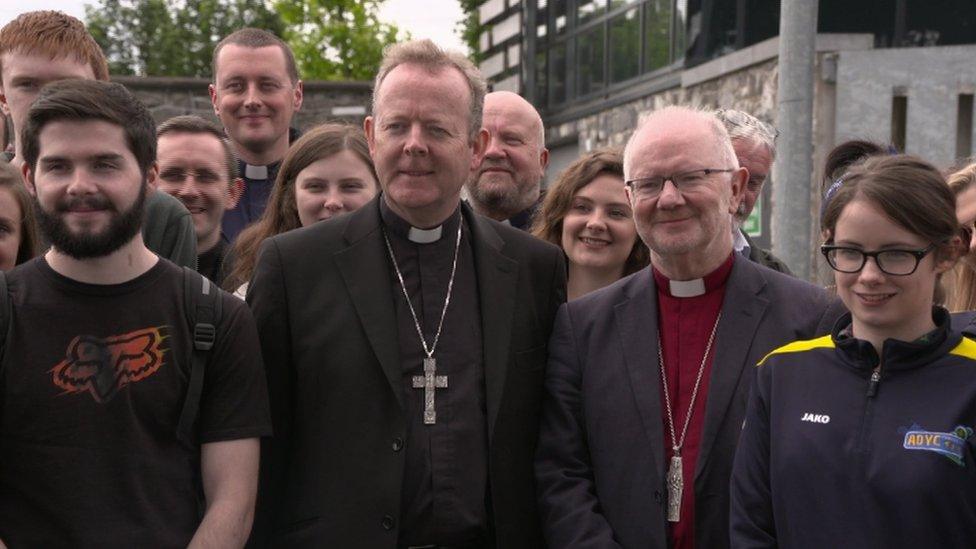
The archbishops say they want the pilgrimage to emphasise the importance of peace
The Catholic and Church of Ireland archbishops of Armagh have started a three-day pilgrimage from Ireland to the site of Battle of the Somme.
Archbishop Eamon Martin and Archbishop Richard Clarke were at Glasnevin Cemetery in Dublin on Wednesday.
They were joined by bishops and lay people who will accompany them on the pilgrimage for the battle's centenary.
The archbishops said they hope the battle shows the futility of violence and the need for peace.
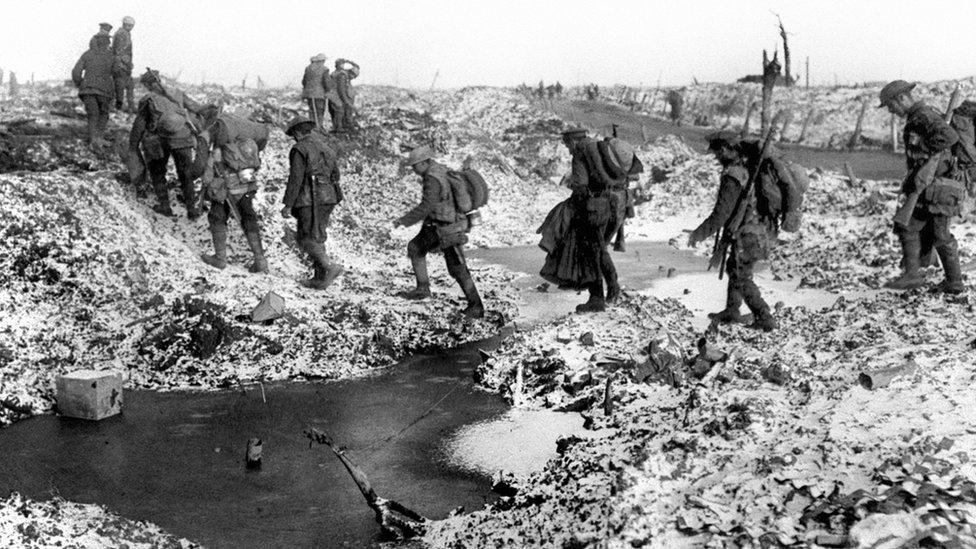
More than one million people on all sides were killed or wounded in the Battle of the Somme
The Battle of the Somme saw about 500,000 casualties, and all to move the frontline about four miles in four-and-a-half months.
Fighting for the British were both Ulstermen opposed to Home Rule and former Irish Volunteers fighting for Home Rule, all in the shadow of the 1916 Easter Rising that would eventually pave the way to Irish independence.
The group going to the Somme started their pilgrimage of peace at Glasnevin Cemetery, where many of those who fought in the Easter Rising are buried.
They were given a guided tour that included a visit to the graves of some of those who died fighting in World War One.
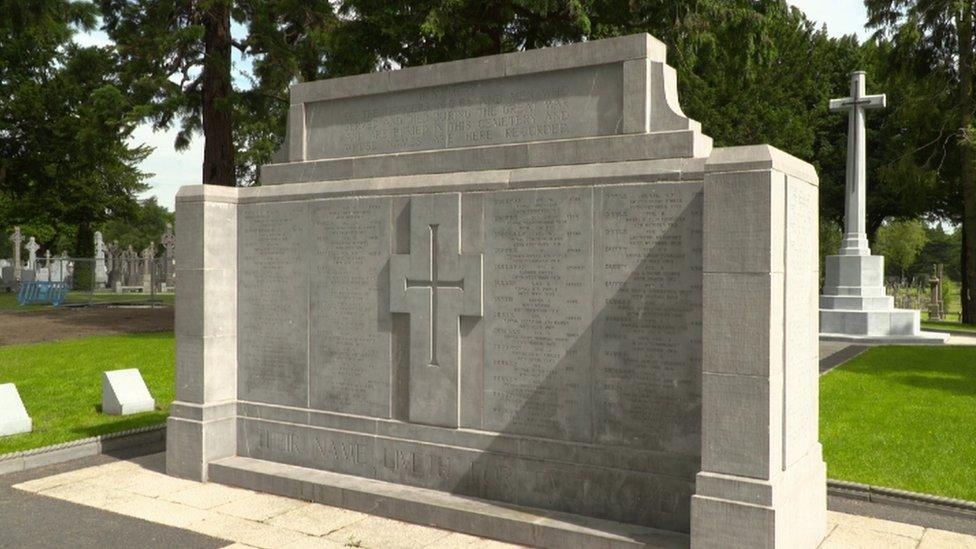
Many of those who fought in the Easter Rising are buried at Glasnevin Cemetery
For both archbishops of Armagh, their voyage is not just political and spiritual, but also personal.
Dr Martin, the Catholic primate of All-Ireland, hopes to find the grave of a granduncle who is buried in Flanders fields, while Dr Clarke's late wife also had a granduncle buried there.
"It really cemented within me the sense of the futility of war, where hundreds of thousands of young people had their lives uprooted and destroyed," Dr Martin said.
"And for me as a religious leader it re-affirms my commitment to peace, reconciliation and healing."
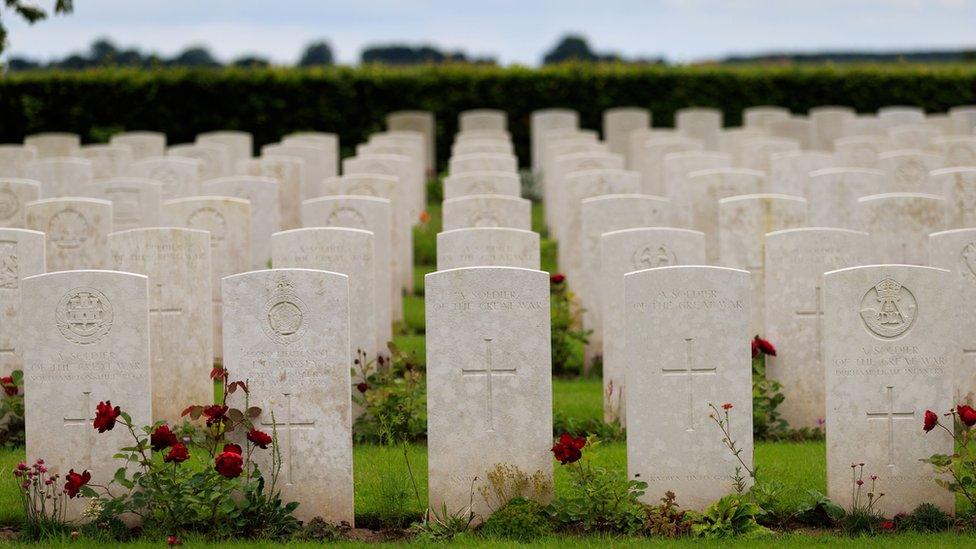
Both archbishops have personal connections to the battle, with family ties to some of the victims
The Church of Ireland primate, Dr Clarke, said: "Overall, you look back at nearly 20,000 dead after one day at the Somme and you just think to yourself: 'No, it could not be worth it.'
"And that's why I hope and say with Archbishop Eamon that peace has got to be the priority for all of us."
Young people accompanying the two archbishops and Bishop Denis Nulty, the Catholic bishop of Kildare and Leighlin, and Bishop John McDowell, the Church of Ireland bishop of Clogher, said it is hard to believe the scale of casualties at the Somme.
Ciaran McManus, a history teacher from Naas in County Kildare, said: "We now regard a small number of deaths as catastrophic and terrible, but for over 200,000 to lose their lives at one time seems very hard to fathom."
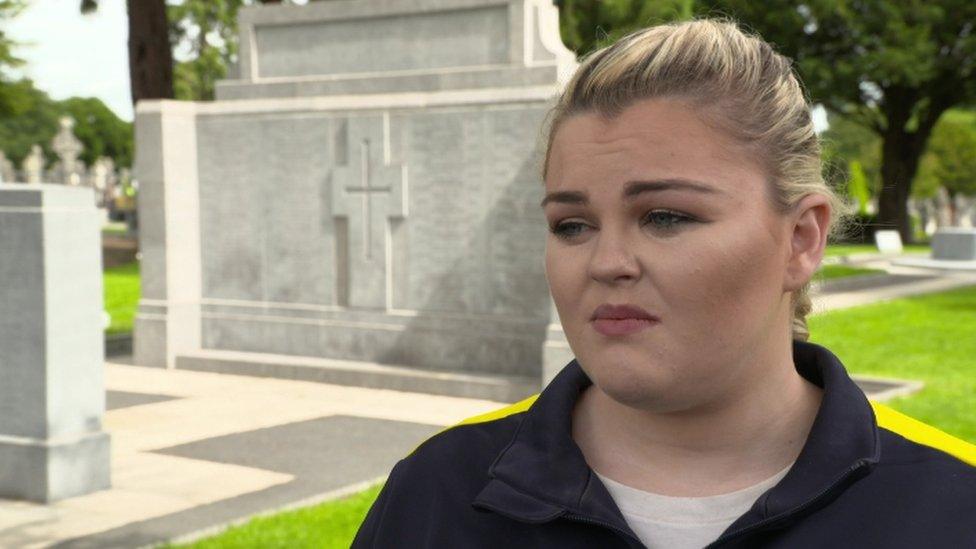
Caitriona McCann says it is interesting to her that people her age fought at the Somme
Caitriona McCann, from County Armagh, agreed.
Members of her family fought in World War One and she said it is interesting to see that "people my own age fought in this battle and that interests me a lot".
The pilgrims from both parts of the island and from two different political and spiritual traditions said they hope their journey through past battlefields will emphasise how much is shared between them and how peace, as an end in itself, must be valued.
- Published17 June 2016
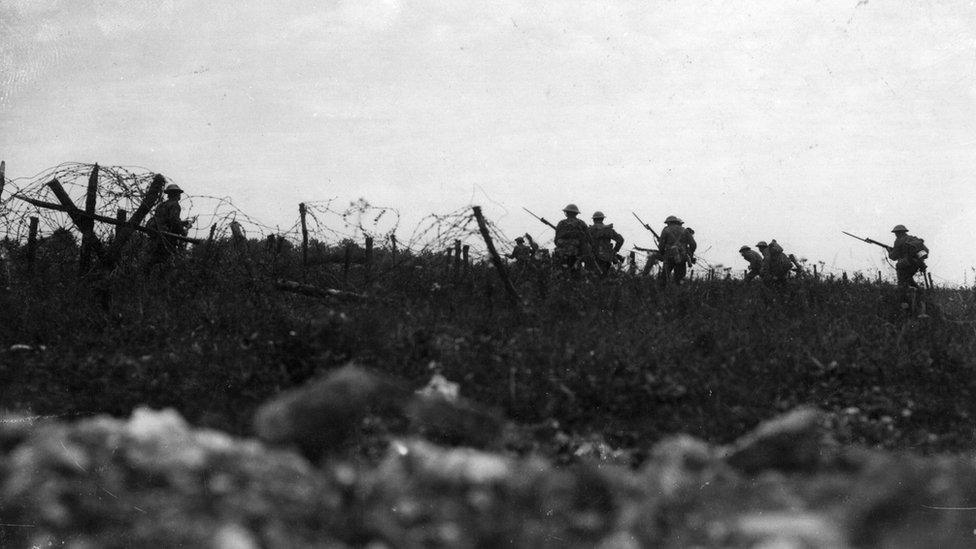
- Published22 June 2016
